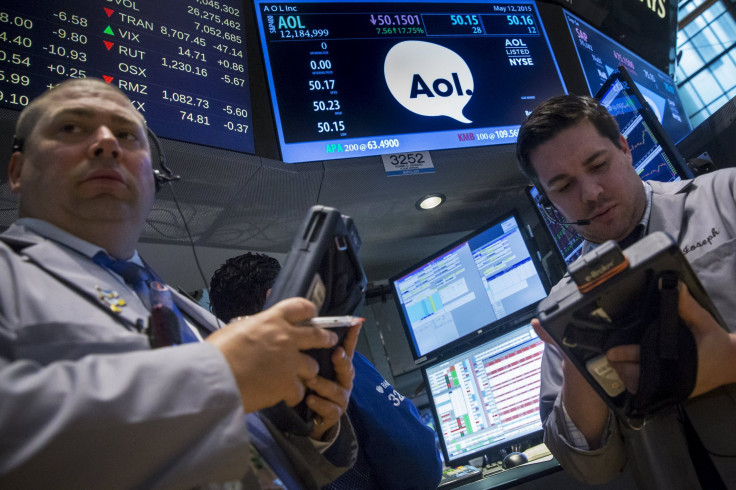Verizon's AOL Deal Is All About Data-Driven Advertising And Web Video

In financial terms, Verizon Communications’ $4.4 billion deal for AOL Inc. is a relatively small bet, much smaller than the last time AOL was involved in a pact that promised a marriage of content and distribution: the disastrous $162 billion merger with Time Warner in 2000.
But the agreement is a strategic one nonetheless for Verizon. The carrier is the number one U.S. wireless provider and a significant source of TV and broadband programming, but it owns no content and has no Web presence. In other words, prior to Tuesday's announcement, it was in significant danger of becoming a dumb pipe: simply another regulated distributor that buys content and resells it to consumers.
Comcast saw the same future and completed its acquisition of NBC Universal's stable of TV networks in 2013. AT&T placed a $48 billion bet on DirecTV's network contracts and 26 million subscribers in a deal that still faces regulatory approval. This is a much lighter version of those two deals in all respects, but as TV meets video and viewers increasingly dump traditional cable TV for a myriad of new services from HBO to Hulu to Dreamworks Animation’s Awesomeness TV, the future of entertainment is looking much more fragmented and reliant on the Web.
"Verizon at least gets some credit for -- as Wayne Gretzky said -- skating to where the puck is going to be," said MoffetNathanson analyst Craig Moffett on CNBC.
With AOL.com, Verizon gets a big front door on the Web and a significant footprint in Internet video. Combined with Verizon’s deal last year to acquire Intel’s unlaunched On Cue video service and its plans to launch a wireless video offering, a Web-video strategy starts to take shape. You can buy your broadband or wireless from Verizon and your content, too.
“Verizon’s vision is to provide customers with a premium digital experience based on a global multiscreen network platform,” said Verizon CEO Lowell McAdam, in a statement.
Ad Technologies
The deal also gives Verizon an ad business that’s small in comparison to Google or Facebook. AOL accounts for less than one percent of the global digital ad market, according to eMarketer. But it is one of very few with a full “stack” of ad technologies -- dubbed "AOL One" -- that help automate what advertisers used to do by hand: move dollars between Web display, video, mobile, and soon, TV.
“It seems like a pretty smart deal by Verizon to buy a data-driven advertising infrastructure and a sales force,” said Bryan Wiener, chairman of global ad giant Dentsu unit 360i. “You could not build that organically -- it’s not in Verizon’s DNA.”
But this puts Verizon in competition with Google and Facebook, who seem unassailable. Google controls a third of the world’s digital advertising; Facebook has the identity graph that advertisers crave. In the same way that Google laying fiber in Austin and Kansas City and Facebook launching Internet balloons are strategic irritants for Verizon, that’s probably how the big powers of digital advertising see AOL’s ad business.
Why Keep Huffington Post?
If Verizon is buying AOL for its ad technologies, then what's to become of AOL's content properties? They are sizeable in Web terms; CEO Tim Armstrong claims Huffington Post has 200 million unique visitors a month and comScore ranks AOL as number three in Web video behind YouTube and Facebook. But it's unclear whether any of AOL’s media brands -- Huffington Post, TechCrunch, Engadget and others acquired over the past decade -- make any money.
Armstrong has said he would listen to offers for AOL’s media properties such as Huffington Post, where he has a fractious working relationship with co-founder and Editor-in-Chief Arianna Huffington. But there’s a good reason for AOL -- and now Verizon -- to hang on to these properties even if they don’t contribute directly to the bottom line. “Having them gives a nice reason for a salesperson to talk to a marketer and customize some kind of experience,” Wiener said. “When you’re repping other people’s content, you are very limited in what you can do.”
Shares of AOL (NYSE:AOL) were up more than 18 percent, to $50.56, in midday trading Tuesday. Verizon (NYSE:VZ) was off .70 percent, to $49.45.
© Copyright IBTimes 2025. All rights reserved.






















